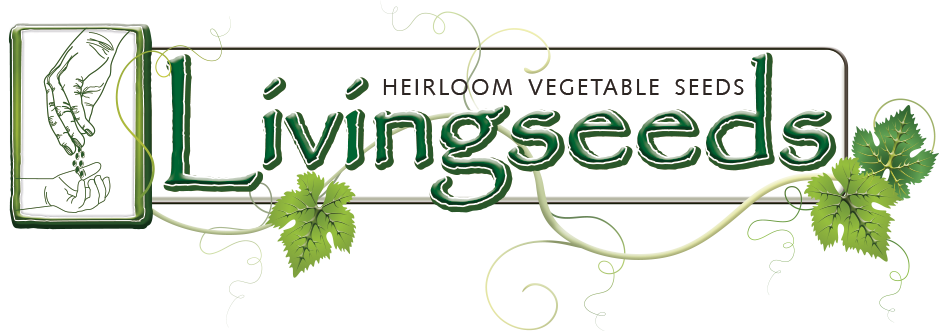What are heirlooms?
Heirloom vegetables can be simply defined as any plant that has been handed down from generation to generation. However there is much debate and discussion between various organisations and bodies that try to place limits and stipulations as to what defines an heirloom plant. We believe that any plant that is firstly open pollinated, secondly has a history of private exchange and thirdly has not been subject to a plant breeders rights claim to be worthy of heirloom status. This definition is however not cast in stone and is open to constructive discussion.
Worldwide the genetic variability of plants, and specifically of concern to us, vegetables are rapidly being destroyed. Small seed houses are being swallowed up by large corporate seed companies, who shut down these operations to ensure that their highly profitable hybrid and GMO varieties are pushed into public and commercial use. Open pollinated and heirloom varieties are sidelined as they do not have the revenue based return business that hybrids possess.
In South Africa specifically, many varieties of traditional subsistence crops are disappearing at an alarming rate, as they are being replaced by common hybrid and GMO varieties. It has been estimated that there were over 300 different varieties of traditionally grown mielies (Corn) in the homeland areas of South Africa, where subsistence farmers would religiously practice seed saving from year to year. Now with the new hybrid and especially GMO varieties that our government has recklessly allowed to be planted, the genetic diversity of these traditional varieties is being destroyed at a rapid rate. Basically what is happening, is that the traditional farmers have lost heirloom varieties that have adapted over hundreds of years to their specific environmental and pest loads.
The late Prof Jack Harlan, was a world renowned plant geneticist who wrote the classic work, Crops and Man while he was the Professor of Plant Genetics at the University of Illinois. In it he wrote the following statement. “These [genetic] resources stand between us and catastrophic starvation on a scale we cannot imagine. In a very real sense, the future of the human race rides on these materials. The line between abundance and disaster is becoming thinner and thinner, and the public is unaware and unconcerned. Must we wait for disaster to be real before we are heard?”
Mankind has reduced his agricultural dependence down to a handful of crops, within that handful, the lines of differentiation in genetic material is so fine that there is no longer a vigorous genetic reservoir that scientists and agronomists can draw upon. If a disease or plague had to strike, mankind could very well be left holding an empty grain sack.
The importance of preserving the genetic viability is critical. One way that seed banks and seed saving schemes help mankind, is to create a repository of genetically diverse seed stock to allow scientists to literally go back in time and utilise this genetic resource to correct deficiencies or increase specific areas of resistance in existing crop varieties, without the need create a genetically modified organism (GMO). Unfortunately, almost all seed banks are closed to the public and you need to be a registered plant breeder to gain access to these stocks of seed.
What we at Livingseeds try to do is provide a solution to this problem of a genetic blind alley, as well as allowing ordinary people access to traditional South African and International heirloom varieties. On this site you will have access to heirloom and open pollinated vegetable varieties which you can use as the foundation for a self-sustainable vegetable garden, and at the same time giving yourself the pleasure of eating vegetable varieties that have a rich and romantic history.
